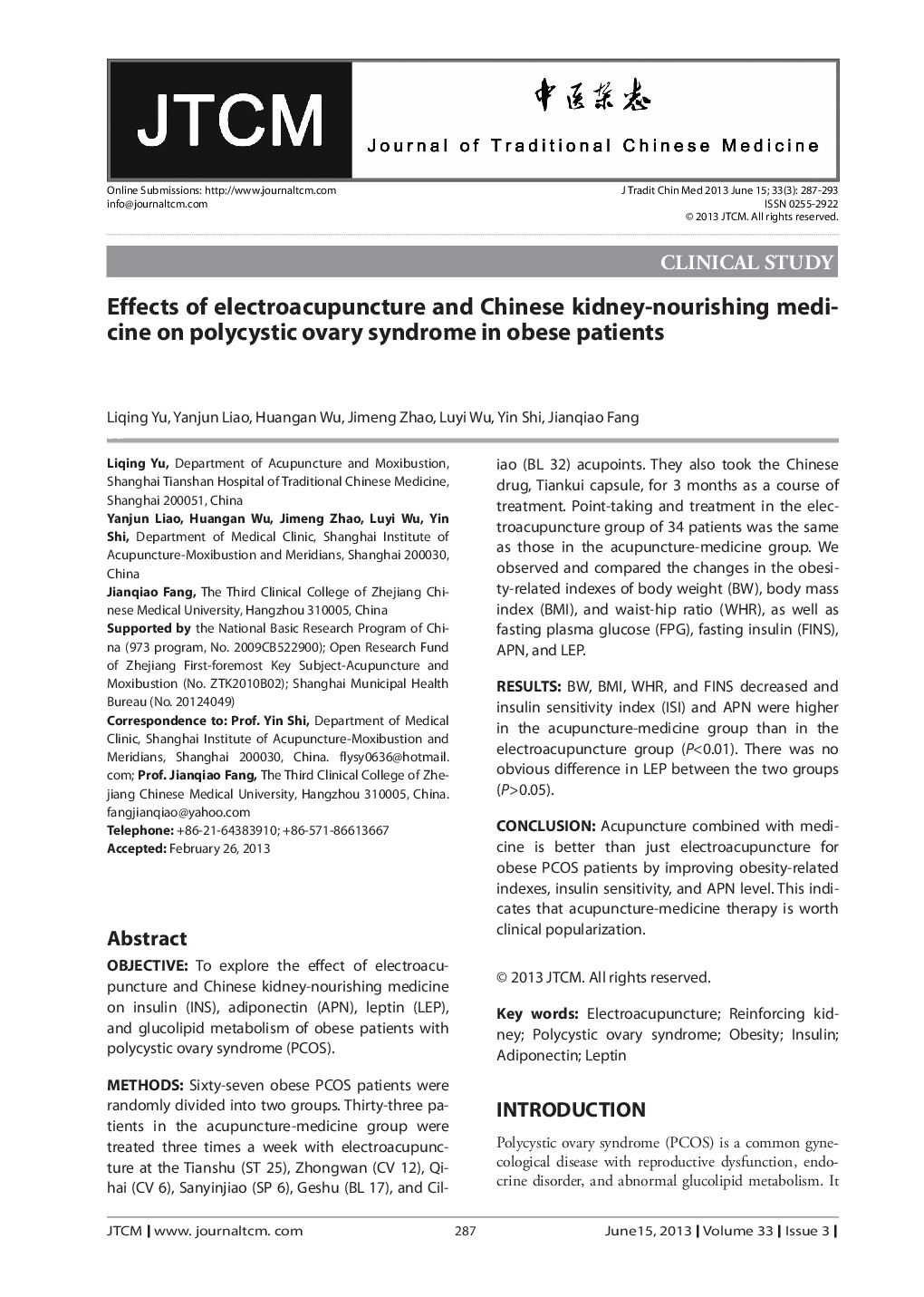| Article ID | Journal | Published Year | Pages | File Type |
|---|---|---|---|---|
| 4201449 | Journal of Traditional Chinese Medicine | 2013 | 7 Pages |
ObjectiveTo explore the effect of electroacupuncture and Chinese kidney-nourishing medicine on insulin (INS), adiponectin (APN), leptin (LEP), and glucolipid metabolism of obese patients with polycystic ovary syndrome (PCOS).MethodsSixty-seven obese PCOS patients were randomly divided into two groups. Thirty-three patients in the acupuncture-medicine group were treated three times a week with electroacupuncture at the Tianshu (ST 25), Zhongwan (CV 12), Qihai (CV 6), Sanyinjiao (SP 6), Geshu (BL 17), and Ciliao (BL 32) acupoints. They also took the Chinese drug, Tiankui capsule, for 3 months as a course of treatment. Point-taking and treatment in the electroacupuncture group of 34 patients was the same as those in the acupuncture-medicine group. We observed and compared the changes in the obesity-related indexes of body weight (BW), body mass index (BMI), and waist-hip ratio (WHR), as well as fasting plasma glucose (FPG), fasting insulin (FINS), APN, and LEP.ResultsBW, BMI, WHR, and FINS decreased and insulin sensitivity index (ISI) and APN were higher in the acupuncture-medicine group than in the electroacupuncture group (P<0.01). There was no obvious difference in LEP between the two groups (P>0.05).ConclusionAcupuncture combined with medicine is better than just electroacupuncture for obese PCOS patients by improving obesity-related indexes, insulin sensitivity, and APN level. This indicates that acupuncture-medicine therapy is worth clinical popularization.
